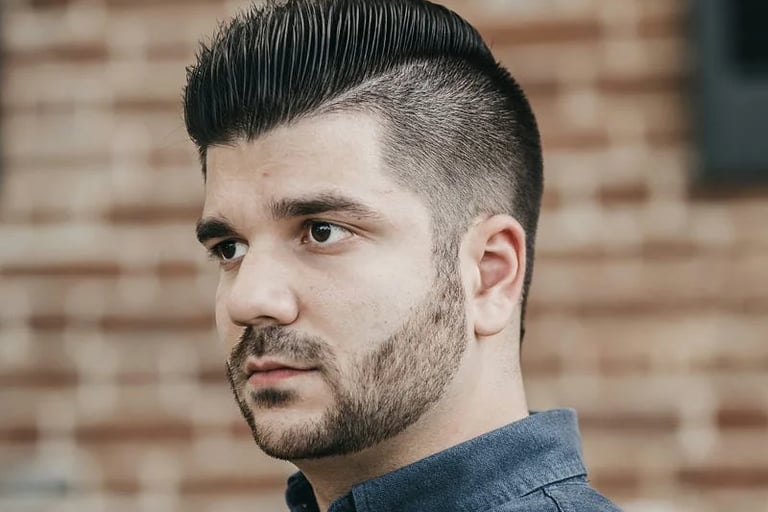Looking for a Therapist on Social Media or searching for more Clients?
Are you posting more and more content to attract clients? Or are you looking for a counsellor using social media? Why it’s not for everyone, and you’ll be fine either way.
WELLBEINGMENTAL HEALTHTHERAPYSOCIAL MEDIA
Ellie Ren
9/24/20245 min read


While training to be a counsellor I used to absolutely cringe at the mention of using social media to attract clients. While I could get my head around building a website for private practice marketing and making contact, I found the whole concept of searching socials to find a therapist to be verging on the ridiculous.
Facebook and Instagram seemed to me to be sign-up search engines where in exchange for exposure you are forced to produce posts to sell your product — which as a psychotherapist, counsellor or holistic practitioner, is yourself. And okay ‘forced’ might be an exaggeration, you could for example just have an ‘about’ page with your contact details or one simple post pinned with a poster advertising your business. But who does that, and why? Again, just make yourself a website.
My other issue is that I like to have strong boundaries, and I simply don’t want to be too ‘available’. Which yes, might make it harder to get clients, but if it helps me feel more in control and safer, that’s a deal breaker.
I personally would not require my therapist to be on Facebook, or even to have a website. But many people do and might even dismiss a potential talking therapist if they discovered they couldn’t find out more about them beyond a few lines on a directory, poster or business card.
I personally would not require my therapist to be on Facebook, or even to have a website. But many people do and might even dismiss a potential talking therapist if they discovered they couldn’t find out more about them beyond a few lines on a directory, poster or business card. There are some people who just don’t feel comfortable approaching a new therapist without getting a social networking flavour of them first. It’s totally understandable, especially to younger people who have grown up checking each other’s profiles and those, who I dare say, make their judgements based on the more superficial side to media publicity.
Of course, there is also an argument to say that social media is one of the only ways a therapist in training can put themselves out there, as it can be difficult to get on a therapist directory without a full qualification or even accreditation in some cases. But again, a website would also provide exposure and appear in search engines.
The thing is, as a client, I don’t really want to read your posts or see sneak peeks into your private life; And as a therapist, I just don’t want to have to keep posting to keep an audience engaged or attract business.
The thing is, as a client, I don’t really want to read your posts or see sneak peeks into your private life; And as a therapist, I just don’t want to have to keep posting to keep an audience engaged or attract business. And sadly, it just isn’t a good look to make a profile on the ‘socials’ and then post very little or nothing at all. People tend to think you’ve died, gone out of business or are just lazy — which they may then unfairly surmise applies to your work ethic as a therapist.
I absolutely understand why social media is used as a platform, I have nothing against anyone who does this, if it gets you more clients, that’s great! The thing is, I do wonder how many therapists have reluctantly opened accounts because they feel pressured into being on Facebook or Instagram. And how many client's are actually bothered about your social media beyond getting your contact details?
Once you are on it you are not only battling algorithms, but other therapists too, and if your content is lacking, or if you pause it for a while, it might put some clients off, or at least bump you from their feed until they've forgotten about you. Frankly it sounds like an endless treadmill and the last thing you want to do after writing up notes, trying to relax after a long day.
The pressure to keep producing content can also lead to posts that I have wondered about, I wonder what their current clients get from reading them - if they follow them. I wonder, will it draw in potential new clients? Is there an attraction through the mere fact that clients can see that someone is alive and has posted recently? A virtual open door, if you like, instantly making you more approachable. That can be the biggest hurdle after all, encouraging a client to make the first move, and drop you a message or email.
Sometimes I even wonder what the therapist is putting out there, consciously or otherwise and how it may be received by followers.
So if you are a prospective client or therapist contemplating your next move I’ve put together some scenarios to consider:
Scenario 1:
You, a therapist put up a post to show you have just got a new haircut. Could it be seen as braggy, unnecessary, even narcissistic; Or maybe your audience will like your confidence? No matter, if you put #selfcare underneath it will be fine, you are being a good role model. And who cares anyway? You’ve got a new do!
Scenario 2:
A therapist you’re thinking of contacting posts a series of photos from their holiday. You may find it aspirational, you might be envious, or you may be wondering why the heck they have shared this and assume they are just a big show off and not for you.
Scenario 3:
You, the therapist decide to use a scheduling website such as Buffer and have it post the content you’ve created for the next few weeks/months — But don’t forget to throw in the odd recent photo to show that you are not a robot. Your clients might appreciate the content and connection, while prospective clients get to see you demonstrating consistency — And viola you are obviously a safe pair of hands, book me in for a session please!
I’m a strong believer that you find the therapist you need at the time. If you meet up for your first session or chat and it doesn’t feel right, you have hopefully learnt something about yourself or your preferences, and that will help you to go on to find the right one.
Trust your intuition and wherever you find a therapist, be it Google, though a therapy centre or charity; make sure they are insured and belong to a professional body such as BACP, UKCP or similar.
Social media can help you find clients, but it doesn’t suit everyone, and it is worth weighing up if it is something that you actually want to do. But for those who are looking for online clients or don’t live near bigger towns, social media is definitely blessing.
I guess what I’m saying is, don’t feel like you have to do it, but if you do, think carefully about what you are posting and why. Make sure you are prepared for that door to open, and do find a way to close it safely again when you need to.








